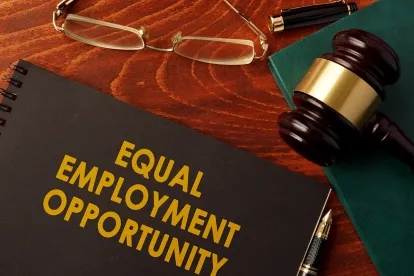On June 29, 2023, the Supreme Court upended the standard for the accommodation of employee religious beliefs and practices that have been relied upon by employers since 1977.
Under Title VII of the Civil Rights Act of 1964, employers may not discriminate against employees based on their religion. As part of this requirement, if an employee has a sincerely held religious belief or practice that conflicts in some way with the requirements of their employment, the employer is required to provide the employee with a reasonable accommodation, assuming that the accommodation does not impose an undue burden on the employer. The key change in the law relates to the meaning of undue burden.
Under the old standard, in place since 1977 from a case called Trans World Airlines, Inc. v. Hardison, 432 U.S. 63 (1977), an employer considering an employee’s religious accommodation request did not need to grant any accommodation that imposed more than a “de minimus cost” on the employer. In practice, this meant that many requested accommodations imposed an undue burden on the employer and were legitimately denied.
For example, if an employee argued that his religious beliefs prevented him from working on Sundays, in a position that sometimes required Sunday work, under the old standard the employer would determine whether the scheduling request imposed more than a “de minimus cost.” The scheduling request might cost the employer some amount of administrative burden, or cause the employer to require other employees to work the religious employee’s shifts, resulting in lower morale and perhaps increased over time. These impositions would likely qualify as imposing more than a de minimus cost on the employer. As a result, the requested accommodation could be denied.
This precise scenario was addressed by the recent U.S. Supreme Court case Groff v DeJoy. In that case, Groff, an employee of the U.S. Postal Service informed his employer that he could not work any Sunday shifts due to his religion. However, the U.S Postal Service required Sunday work to ensure timely delivery of Amazon packages. As a result, Groff was disciplined for missing shifts and ultimately resigned. The U.S. Supreme Court determined that the administrative burden of scheduling changes as well as the impact on the morale of other employees did not constitute an undue burden under Title VII of the Civil Rights Act. Instead, it determined that rather than using the “de minimus” standard relied upon by employers since 1977, the Postal Service could only deny an accommodation if it resulted in “substantially increased costs in relation to the conduct of its particular business.” This is a key departure from the prior “de minimus cost” threshold for denial of an accommodation.
Since the onset of COVID-19, employers have seen an uptick in religious accommodation requests. A frequent example is requests by employees to avoid vaccine mandates, citing religious belief as their basis for refusal to comply with such policies. Many employers developed policies related to the assessment of religious accommodation requests in response. Based on the new U.S. Supreme Court case, employers must scrutinize religious accommodation requests more closely and keep in mind that a mere “de minimus cost” is not enough to deny a request. Instead, employers must determine whether there is a “substantial cost in relation to the conduct of its particular business.” While it will take some time for the courts to determine the meaning of this standard in various circumstances, it is clear from the case that requests for scheduling changes, even if they impose some administrative burden, or impact employee morale, will be seen as reasonable and must be granted (absent a collective bargaining agreement on the subject).
Employers should review their religious accommodation request policies with counsel and make sure they are in compliance with the new standard articulated by the U.S. Supreme Court.




 />i
/>i
